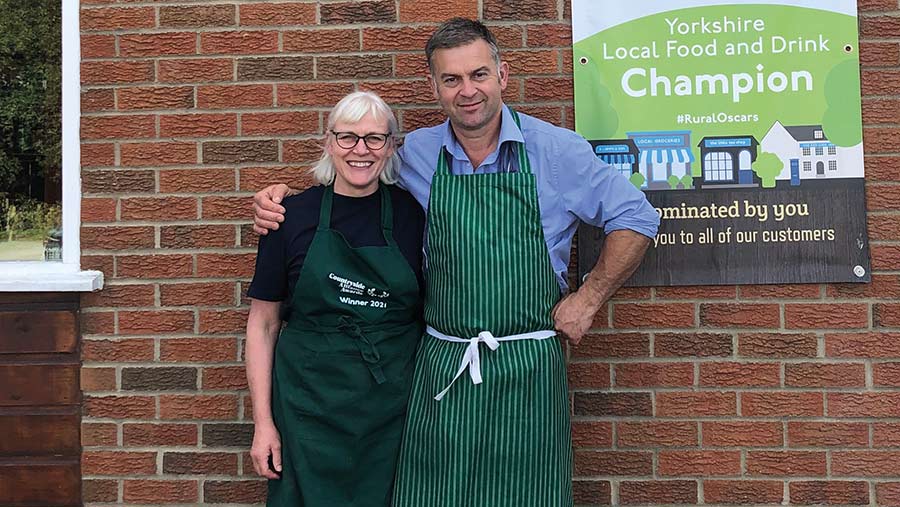Energy uncertainty forces difficult closure of farm shop
 Lily and Stuart Beaton © Lily Beaton
Lily and Stuart Beaton © Lily Beaton Spiralling energy prices and labour shortages are putting pressure on farm shops and forcing the closure of successful, well-established businesses
The Ainsty Farm Shop, near York, had been trading for 22 years, ever since beef and sheep farmers Stuart and Lily Beaton established the business to add value to their meat and generate additional income.
However, the shop had its final trading day on 17 September, just days before the government’s 21 September announcement that there would be support for businesses through the Energy Bill Relief Scheme, fixing commercial gas and electricity prices for six months from 1 October.
Ainsty Farm Shop had a traditional butchery, an in-house bakery and a deli, as well as a wedding and event catering arm.
See also: Support scheme to halve energy bills for UK farm businesses
The Beatons set up the business with another farmer who has since retired.
It withstood some of the cost pressures that crept in during recent months, but when their electricity contract ended and they faced a £55,000 hike in annual energy costs, the figures no longer stacked up. “We had no choice but to close the business,” says Mr Beaton.
The Beatons say that with the support announcement coming so late, time was not on their side – a break in the lease on the rented site in September coincided with their electricity contract ending.
“Rather than risk tying in to a new electricity contract and lease, without knowing what the aid package would be or for how long, we had to close,” says Mrs Beaton.
Labour availability was also an issue; the business once employed 12 people, but that had reduced to four employed staff, with two of those working just one day a week.
“We have had to work more hours to take up that slack, but the sums now mean that it is just not worth doing and we are not going to do it,” says Mr Beaton. “We had been advertising for a butcher for more than a year, but applicants are more rare than Father Christmas.”
With a loyal customer base, the butchery side of the business will now transfer to the Beatons’ nearby farm.
The couple buy store cattle in spring and fatten them through the summer, while in the winter their focus shifts to producing lamb from their flock of breeding ewes.
“A lot of butchers don’t have a plan B, but we are going to sell meat boxes,” says Mr Beaton. “They say that the future is in the past, and we are diversifying back to where we diversified from more than 20 years ago.”
Uncertain future for farm retailers
The Ainsty Farm Shop is not alone – many other farm retailers face an uncertain future.
The Farm Retail Association (FRA), which has 350 members, says the winter will be difficult, but that it will continue to work together and support its members through this very challenging period.
The FRA welcomes the government’s energy support package as a lifeline for farm shops in the face of soaring costs that some would not be able to sustain.
Chairman Rupert Evans says detail is now needed to understand how the scheme will work, which businesses will qualify for the extended support and to understand what happens after the six-month price fix ends.
“The FRA is bringing the farm retail businesses together through webinars and social media, and we are seeing businesses supporting each other and exchanging ideas of best practice,” says Mr Evans.
“Our most recent webinar was with an energy expert to help advise and support our members, and we will continue to do this as further details emerge and the situation develops.”
Have your say
How has your farm retail business been affected by rising energy and other costs? Have you changed the way you do business? If so, your experience could help others. Get in touch with Farmers Weekly – email suzie.horne@markallengroup.com.
